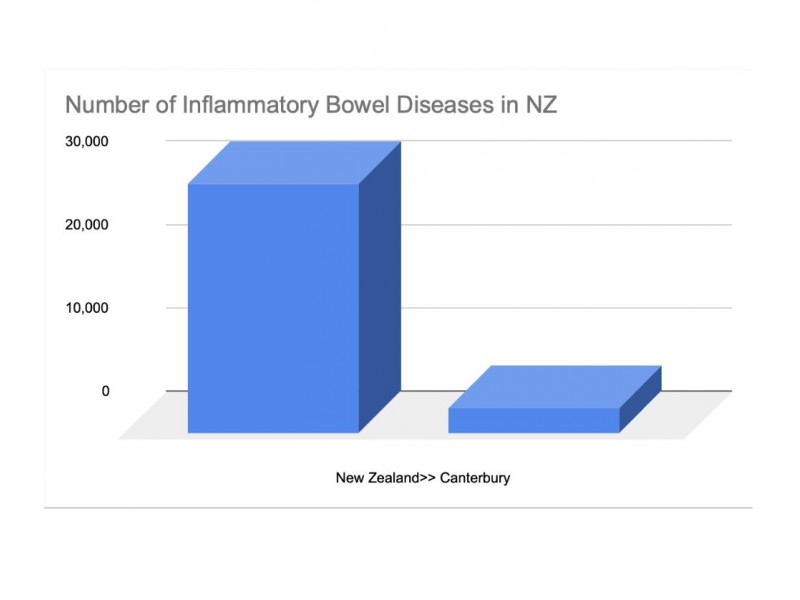She said this chronic, incurable digestive disorder displayed no consistent patterns as it could be either inherited from family or brought on by an environmental trigger.
"It could be what they eat, the pollution in the environment, or an overuse of antibiotics," she said.
This disease is unpredictable affecting a range of people from the age of five to 75.
"It tends to affect people at periods of life change, such as late teens, early 20s or anything with major changes. The more research we conduct the closer we are to finding more patterns."
Wall also said whether the disease was mild or severe, anything could have a huge impact on people's lives.
"When the intestine lining is especially active, it affects their ability to work, socialise, to eat normally and affects their energy levels every day."
A 15-year-old youth ambassador for Crohn's and Colitis can relate with this on first-hand experience.
Charlotte Livingstone was diagnosed with a serious case of IBD at the age of just 11.
She said it's been one of the hardest things her and her family have had to fight since the diagnosis.
"So many people are unaware of the effects Crohn's and Colitis can have on some people."
She said many people have treated the disease differently from a physical injury because it was not visually obvious.
“Just because you can't see the disease, does not mean it's not there,’’ she said.
Livingstone gets fed through a tube twice a day and will most likely will need surgery if her case continues to worsen.
“The more we talk about it the more acceptable it will become, especially for the younger generation.”
New Zealand has the third highest IBD rate in the world.
“It's way more serious than people tend to think, with IBD having a different effect on everyone,” she said.
“Sometimes it's just the reaction to the medication. Other times you could be hospitalised for weeks on end.”
Livingstone said some people could no longer play sport, “in case there are no toilets nearby’’.
Wall hoped Pharmac would continue to fund more medication for those individuals living with IBD.
"Just recently there was another two new medications funded, which help improve peoples quality of life."
Wall said it was important people did not stop looking after their health in order to prevent the disease.
"Our research is proving that your diet and nutrition is of utmost importance once you have been diagnosed.
"It's all about learning the important role of dietary fibre and development," she said.
Wall hopes the continuation of research will lead them closer to the cause of this disease and hopefully slow down the rates in Aotearoa.


